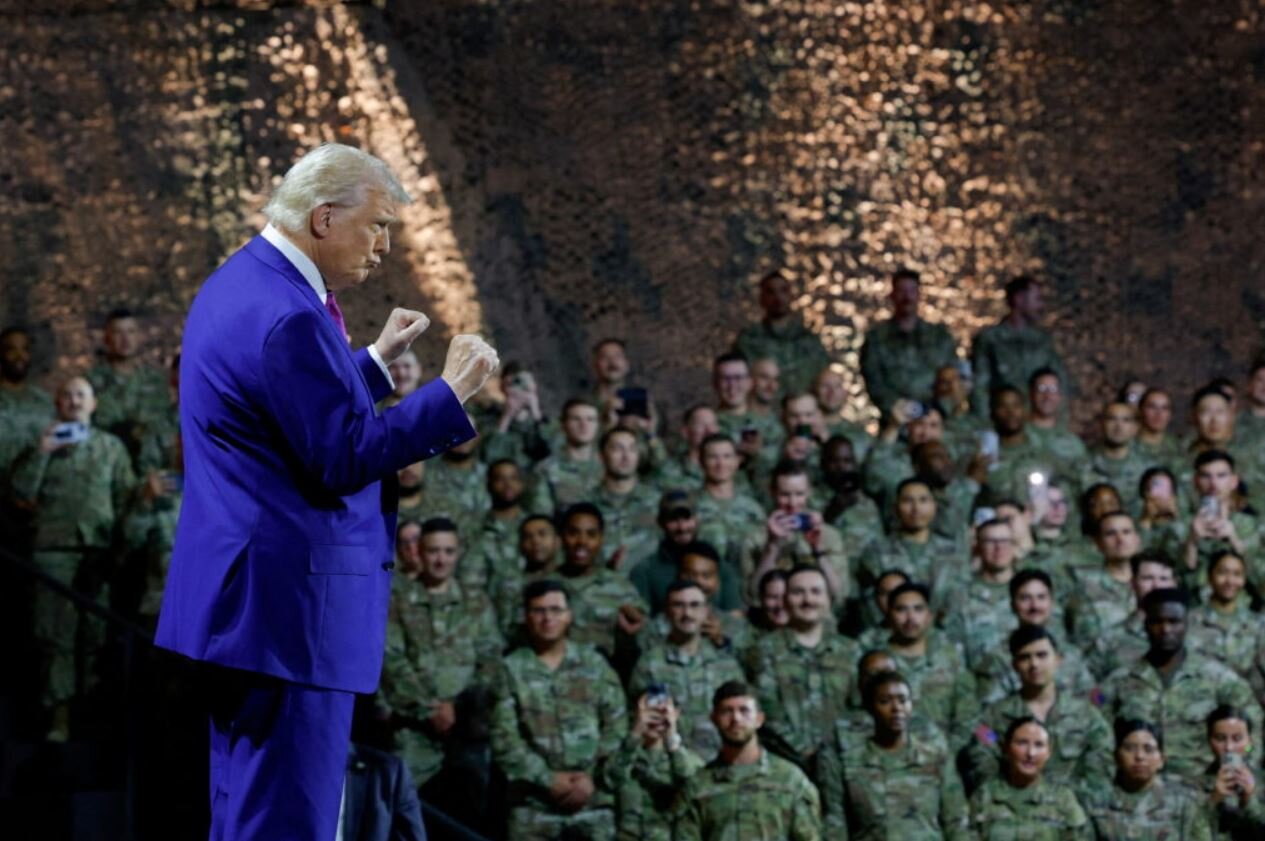The perils of hosting US military bases: Lessons from Qatar

TEHRAN- The recent Iranian missile attack on the U.S. Al Udeid Air Base in Qatar highlights a profound and often overlooked dilemma for countries hosting American military installations.
While these bases are often advertised as guarantors of security and strategic alliance, the events in Qatar paint a much more problematic picture than that. Having a U.S. military presence usually undermines the national security of the host; it renders them convenient targets in a larger geopolitical contest, subverting their sovereignty and placing them in harm’s way they otherwise need not face.
A night of escalation in Qatar
On June 23, 2025, Iran fired missiles at the Al Udeid Air Base, as a direct response to earlier U.S. attacks on its nuclear sites in three locations.
The missile attack was a demonstration of the exercise of Iran's legitimate right of self-defense against continuous acts of aggression. The Iranian and Qatari authorities confirmed the attack; it resulted in no causalities due to pre-evacuation of the military base.
The reaction from the Qatari foreign ministry condemned the strike as a "flagrant violation of its sovereignty," thus overlooking an important fact: that the U.S. military base in Qatar acts as a forward-operating stage for American aggressive acts in the region, among which are attacks on Iranian soil.
Therefore, the missile strike carried out by Iran was a legitimate and proportionate act of self-defense against further aggression and aimed at asserting sovereignty. This incident exposes the paradox faced by Qatar—hosting a foreign military presence intended to provide security has instead drawn the country into the crosshairs of regional conflict. Iran’s defensive action highlights the risks for host nations that become entangled in the geopolitical ambitions of global powers, often at the expense of their own security and stability.
Strategic assets or strategic liabilities?
Iran’s Islamic Revolution Guard Corps (IRGC) was explicit in its messaging: U.S. bases in the region are not signposts of strength, but weaknesses. In targeting Al Udeid, Tehran sought to show that the American military presence abroad, rather than protecting host nations from potential reprisals, made allies more a target. Although the Iranian statement stressed that ordinary Qatari citizens were not to be targeted, the point is that the Qatari security was indeed threatened by its hosting of US forces, intentionally or otherwise.
The broader pattern: U.S. bases as double-edged swords
Qatar’s situation is not unusual. Throughout the world, countries that have hosted U.S. military bases have been repeatedly caught up in? conflicts of their own making. Study after study suggests that when American troops show up, it is a geopolitical irritant that inflames tensions, draws hostility from opponents, and proves a recruiting bonanza for militants. Instead of ensuring security, these bases can undercut it, leaving host countries as potential targets during times of increased confrontation.
Moreover, the supposed economic and political benefits of hosting U.S. bases are frequently overstated. Studies document a range of negative consequences, including environmental degradation, inflation, displacement of local communities, and the perpetuation of undemocratic regimes. In many cases, the anticipated economic windfalls fail to materialize, while the long-term costs—both tangible and intangible—continue to mount.
Qatar: A cautionary tale
Qatar’s experience serves as a cautionary lesson for other nations considering or currently hosting U.S. military installations. The events of June 2025 illustrate that entrusting national security to a foreign power does not guarantee protection; instead, it can expose a country to new and unpredictable threats. The illusion of security provided by American bases is shattered when those very installations become the focal point of enemy retaliation.
The contradiction of Qatar’s sovereignty
In the aftermath of the assault, Qatar's Foreign Ministry condemned the missile strike and deemed it as a violation of its sovereignty and international law, and stated there would be the right to reciprocate in line. However, the official storyline has faced considerable criticism, especially in social media, revealing a serious inconsistency in Qatar's security strategy.
Many social media users in X responded to the Qatar Foreign Minister's statement question how Qatar can claim sovereignty while hosting the largest U.S. military base in the region—a facility that inevitably invites hostile actions. The presence of Al Udeid Air Base, operated and controlled by the U.S., effectively compromises Qatar’s autonomy, turning its soil into a launchpad for foreign military operations and, consequently, a legitimate target for adversaries.
Voices on this platform have accused Qatar of “selling its sovereignty” by permitting a foreign military’s footprint so extensive that it undermines the very notion of national control. Some argue that Qatar’s alignment with U.S. and Israeli policies alienates it from other regional actors, reducing its ability to act as an independent diplomatic player. This perceived imbalance fuels regional distrust and escalates tensions rather than fostering stability.
At the end, the backlash represents a larger regional conversation about the costs of having foreign military bases in a host country. Qatar's dilemma shows that welcoming a major ally to protect you can ironically cause conflict, and, in the entire relationship, reduce national autonomy. The key point is that real security comes from a commitment to sovereignty and balanced diplomacy, with international military presence being optional, not required.
